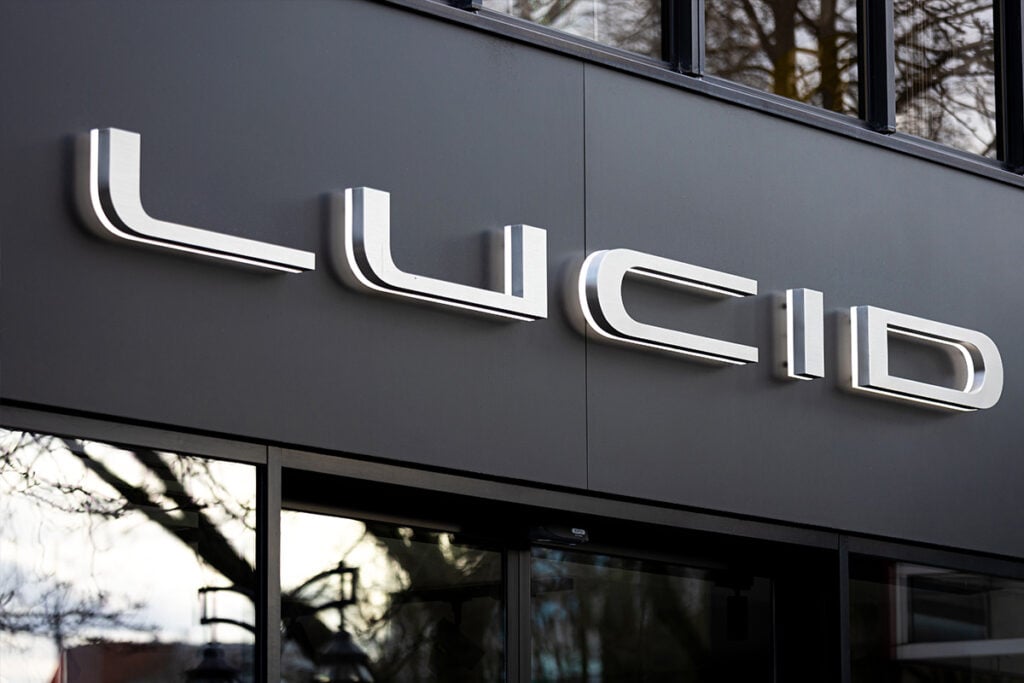TLDR
- Lucid Group’s longtime CEO Peter Rawlinson stepped down after 12 years, creating uncertainty about future product development and funding access
- The company has less than $1.9 billion in cash but burned $2.4 billion over the past 12 months, raising bankruptcy concerns
- Bank of America downgraded the stock to underperform, calling Rawlinson’s departure “more consequential” than markets realize
- Trump’s proposed bill would eliminate federal EV tax credits worth $4,000-$7,500, potentially hurting demand for Lucid’s vehicles
- Lucid needs mass-market vehicles under $50,000 to achieve scale, but current lineup consists only of luxury models priced $70,000-$100,000
Lucid Group faces mounting challenges as leadership changes coincide with potential policy shifts that could reshape the electric vehicle landscape. The company’s stock has declined as analysts warn of escalating risks.
Peter Rawlinson stepped down as CEO in February after leading the company for 12 years. He oversaw the launch of both the Air sedan and Gravity SUV before deciding to step aside. His departure caught many investors off guard during the fourth-quarter earnings call.
Rawlinson stated it was simply time to move on after successfully launching the Gravity platform. However, his absence from the quarterly conference call raised questions about the timing and circumstances of his exit.
Bank of America analyst John Murphy downgraded the stock to underperform following the leadership change. The firm expects product development to stall and consumer demand to weaken. Murphy called Rawlinson’s departure “more consequential” than markets understand.
The downgrade reflects concerns about Lucid’s ability to secure future funding without its founder at the helm. Access to capital remains the company’s most pressing challenge.

Financial Pressures Mount
Lucid currently holds less than $1.9 billion in cash reserves. The company posted a $2.4 billion loss over the past 12 months, creating a cash burn rate of approximately $500 million per quarter.
The company raised $1.75 billion in late 2024 despite weak share performance. Outstanding shares have jumped roughly 30% over the past six months due to dilution from fundraising efforts.
Share dilution continues to accelerate while the stock price remains depressed. This limits Lucid’s ability to raise additional capital without further diluting existing shareholders.
Current cash reserves plus potential stock sales should provide roughly one year of runway. However, the company will need substantial additional funding to bring mass-market vehicles to production.
Policy Threats Emerge
Trump’s “One Big Beautiful Bill” includes provisions to eliminate federal EV tax credits. These credits currently provide $4,000 to $7,500 in savings for electric vehicle buyers.
Removing these incentives would effectively increase EV prices for consumers. This could dampen demand across the entire electric vehicle sector, particularly hurting newer companies like Lucid.
The policy change comes at a challenging time for Lucid’s product lineup. The company currently offers only luxury vehicles priced between $70,000 and $100,000.
Sales growth in 2025 is expected to reach 73%, driven primarily by the new Gravity SUV platform. Analysts project nearly 100% growth in 2026 if current trends continue.
Mass Market Strategy Faces Delays
Lucid has teased plans for mass-market vehicles priced under $50,000 starting in late 2026. However, details about these models remain scarce and timelines often face delays.
Tesla’s success demonstrates the importance of affordable models, with the Model 3 and Model Y accounting for over 90% of unit sales. Mass-market vehicles provide the scale needed for operational leverage and profitability.
Developing new EV models requires billions in capital investment. Lucid’s current financial position makes this challenging without additional fundraising rounds.
The combination of policy uncertainty and leadership changes could make investors more hesitant to provide funding. This creates a difficult environment for capital-intensive businesses like Lucid.
Recent quarterly results showed a $397 million fourth-quarter loss, highlighting ongoing profitability challenges. The company has never posted a profitable quarter since going public.
Competition from established players like Tesla and newer entrants like Rivian continues to intensify. These competitors have stronger balance sheets and more diverse product lineups.
Lucid’s current cash burn rate suggests the company needs approximately $500 million per quarter to maintain operations. This timeline creates urgency around both fundraising and product development milestones.


